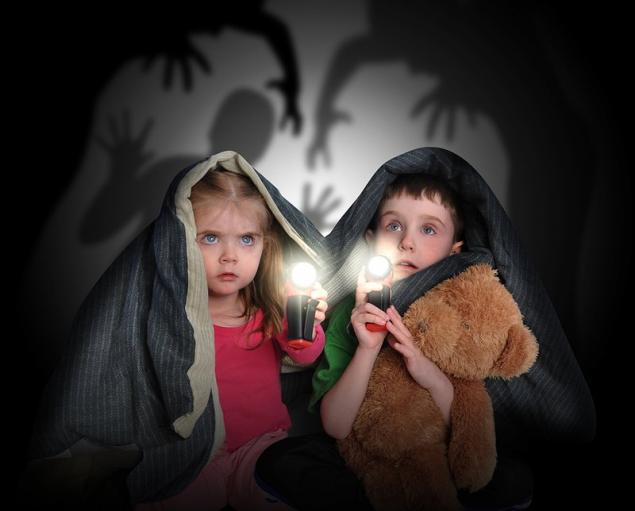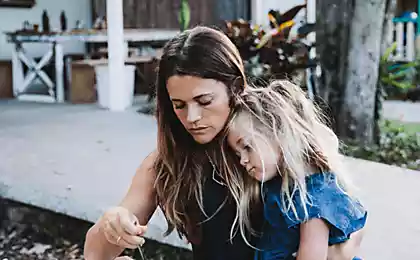483
When the truth and the child is better not to speak
When sincerity in dealing with child extra
Emotional sincerity – a great concept, but only if it concerns a relationship of adults. Some experts urge that to be sincere with your children and share with them their experiences. They believe that to share with children feelings is a way to teach them how to be emotionally sensitive and aware that many parents want this for their children. The problem is not the goal, but how we achieve it.

If you put yourself in the place of the child and look at the emotional sincerity of his eyes, the problems will become obvious. When a child sees you angry at him, he might think that your relationship with him is based on this emotions (especially young children). He may decide that he is bad or something is wrong. If the parent is frightened, it will raise anxiety in the child. The parent is the anchor for the child, his base reliable, and if you are shaking from fear, and his world becomes less safe. The child begins to feel anxiety. I remember Dr. Neufeld told how he was consulted by how to talk to children about the tragedy of September 11. He was advised to protect them from that and give them the feeling that they're safe and that you are sure that nothing like them will never happen.
The biggest problem is the emotional sincerity that the children in this case are treated as adults. But it doesn't work because of their need for strong and safe attachment. Affection for us is designed to make children dependent on us, and that is what essentially gives us the power to be a parent and teach them. When you start to talk to them as adults and become emotionally honest with them, it does not promote dependent relationships. On the contrary, such an approach will encourage children to take the alpha position, and they will decide what care of themselves they need to take on. Children who took the alpha position, do not feel calm, they are very disturbing and difficult to raise.
So, what parent, when his child is angry, sad, frustrated or scared?Whatever we felt, most importantly, we must convey to the child is what our relationship is fine, we are still their parents, our love for him has not diminished and we do they will not go away. We can say that now it is not easy, if it's so obvious, but to assure you that everything will be fine and we'll deal with it. The basic principle is that we don't want them worried due to the fact that the relationship was under threat.
And what do we say when we face death? How sincere should we be in this case?Here the principle is the same: to confirm the Association and to cover any separation that they can feel.

For example, we can say: "I will always be your mom/dad", "I'm not going to leave." When the dog dies our tenant, my daughter struggled with questions about where she went. We thought about her, looked at her photos. We agreed that if you want to reminisce about it, then you can just take a picture of her or send her a message straight to heaven and she will hear us. Open daughter 4 years the existential realities of existence would be too, she would feel beside me is unsafe.
When my daughter enough to do this, older, together we will reflect on these issues, but now I protect them from feelings of insecurity, which is complete around. And yet the emotional sincerity in order to teach emotions and to teach "to meet face-to-face with the realities of life", and give them the feeling of secure base that is so necessary for their growth and development. published
@ Deborah McNamara, the translation of the Yulia Tverdokhlebova, the editors Hope Shestakova
P. S. And remember, just changing your mind — together we change the world! ©
Source: alpha-parenting.ru/2016/01/04/kogda-pravdu-luchshe-ne-govorit/
Emotional sincerity – a great concept, but only if it concerns a relationship of adults. Some experts urge that to be sincere with your children and share with them their experiences. They believe that to share with children feelings is a way to teach them how to be emotionally sensitive and aware that many parents want this for their children. The problem is not the goal, but how we achieve it.

If you put yourself in the place of the child and look at the emotional sincerity of his eyes, the problems will become obvious. When a child sees you angry at him, he might think that your relationship with him is based on this emotions (especially young children). He may decide that he is bad or something is wrong. If the parent is frightened, it will raise anxiety in the child. The parent is the anchor for the child, his base reliable, and if you are shaking from fear, and his world becomes less safe. The child begins to feel anxiety. I remember Dr. Neufeld told how he was consulted by how to talk to children about the tragedy of September 11. He was advised to protect them from that and give them the feeling that they're safe and that you are sure that nothing like them will never happen.
The biggest problem is the emotional sincerity that the children in this case are treated as adults. But it doesn't work because of their need for strong and safe attachment. Affection for us is designed to make children dependent on us, and that is what essentially gives us the power to be a parent and teach them. When you start to talk to them as adults and become emotionally honest with them, it does not promote dependent relationships. On the contrary, such an approach will encourage children to take the alpha position, and they will decide what care of themselves they need to take on. Children who took the alpha position, do not feel calm, they are very disturbing and difficult to raise.
So, what parent, when his child is angry, sad, frustrated or scared?Whatever we felt, most importantly, we must convey to the child is what our relationship is fine, we are still their parents, our love for him has not diminished and we do they will not go away. We can say that now it is not easy, if it's so obvious, but to assure you that everything will be fine and we'll deal with it. The basic principle is that we don't want them worried due to the fact that the relationship was under threat.
And what do we say when we face death? How sincere should we be in this case?Here the principle is the same: to confirm the Association and to cover any separation that they can feel.

For example, we can say: "I will always be your mom/dad", "I'm not going to leave." When the dog dies our tenant, my daughter struggled with questions about where she went. We thought about her, looked at her photos. We agreed that if you want to reminisce about it, then you can just take a picture of her or send her a message straight to heaven and she will hear us. Open daughter 4 years the existential realities of existence would be too, she would feel beside me is unsafe.
When my daughter enough to do this, older, together we will reflect on these issues, but now I protect them from feelings of insecurity, which is complete around. And yet the emotional sincerity in order to teach emotions and to teach "to meet face-to-face with the realities of life", and give them the feeling of secure base that is so necessary for their growth and development. published
@ Deborah McNamara, the translation of the Yulia Tverdokhlebova, the editors Hope Shestakova
P. S. And remember, just changing your mind — together we change the world! ©
Source: alpha-parenting.ru/2016/01/04/kogda-pravdu-luchshe-ne-govorit/























